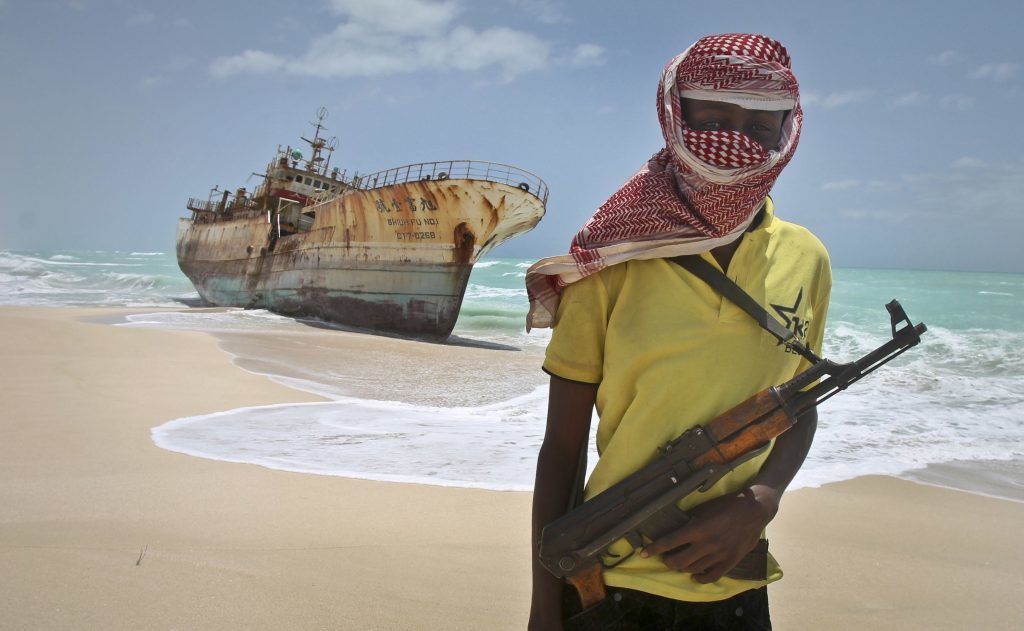
Pirates have hijacked an oil tanker off the coast of Somalia in the first attack on a large commercial vessel there since 2012.
The Aris 13 reported being approached by two skiffs on Monday, said John Steed, from the organisation Oceans Beyond Piracy.
The ship had been carrying fuel from Djibouti to Somalia’s capital, Mogadishu, he said.
An official from the semi-autonomous state of Puntland said more than two dozen men had boarded the ship off Somalia’s northern coast.
Another Puntland official said the freighter was being moved towards the coast.
A Britain-based spokeswoman for the European Union Naval Force operation off Somalia, Flight Lieutenant Louise Tagg, confirmed that an incident involving an oil tanker had occurred and an investigation was under way.
An official based in the Middle East with knowledge of the incident told the Associated Press that eight Sri Lankan crew members were on board the vessel.
The official said it was unclear what the circumstances were surrounding the ship stopping off northern Somalia, an area known to be used by weapons smugglers and members of the al Qaida-linked extremist group al-Shabab.
The official said no ransom demand had been made.
“The vessel’s captain reported to the company they were approached by two skiffs and that one of them they could see armed personnel on board,” the official said.
“The ship changed course quite soon after that report and is now anchored.”
It was not immediately clear who owned the ship or where it was flagged.
Mr Steed said it was UAE-owned and Sri Lankan-flagged, but the Middle East-based official said it was Greek-owned and Comoros-flagged with plans to re-flag it to Sri Lanka.
The US Navy’s 5th Fleet, which is based in Bahrain and oversees anti-piracy efforts in the region, did not immediately respond to a request for comment.
Piracy off Somalia’s coast was once a serious threat to the global shipping industry. It has lessened in recent years after an international effort to patrol near the country, whose weak central government has been trying to assert itself after a quarter of a century of conflict.
But frustrations have been rising among local fishermen, including former pirates, at what they say are foreign fishermen illegally fishing in local waters.
Salad Nur, an elder in Alula, a coastal town in Puntland, told the AP by telephone that young fishermen including former pirates had hijacked the ship.
“They have been sailing through the ocean in search for a foreign ship to hijack since yesterday morning and found this ship and boarded it,” he said. “Foreign fishermen destroyed their livelihoods and deprived them of proper fishing.”
Somali pirates usually hijack ships and crew for ransom. They do not normally kill hostages unless they come under attack, including during rescue attempts.
This would be the first commercial pirate attack off Somalia since 2012, Mr Steed said.
A United Nations report seen by the AP in November said it had been almost three years since Somali pirates successfully hijacked a large commercial vessel, but they retain the capacity and intent to resume the attacks and lately have shifted to targeting smaller foreign fishing boats.
The EU force website currently lists no vessels or hostages held by pirates.
Concerns about piracy off Africa’s coast have largely shifted to the Gulf of Guinea.